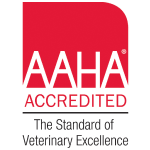Want to Be a Veterinarian?
Want to Be a Veterinarian?
If you have a deep love for animals, a strong interest in science, and a desire to make a difference in the lives of pets and their owners, becoming a veterinarian might be the ideal career path. Veterinarians are highly trained medical professionals who diagnose, treat, and prevent health issues in animals. Their expertise is crucial in helping animals live healthy, happy lives and supporting the well-being of pets, livestock, and even wildlife.
What Does a Veterinarian Do?
Veterinarians provide medical care to animals, offering everything from routine wellness exams to complex surgeries and emergency treatment. Their work varies widely depending on their area of specialization and type of practice, but it typically involves a mix of clinical, surgical, and advisory responsibilities.
Here are some of the primary duties of a veterinarian:
- Diagnosing Health Issues: Veterinarians evaluate animals by performing physical exams, analyzing lab tests, and using diagnostic imaging to identify health problems and determine the best treatment options.
- Treating Medical Conditions and Injuries: Vets develop treatment plans for illnesses, prescribe medications, and perform surgeries when necessary, ensuring pets receive comprehensive care.
- Providing Preventive Care: From vaccinations and dental care to nutritional advice, veterinarians guide pet owners in preventive care to help animals stay healthy throughout their lives.
- Educating Pet Owners: Vets play a critical role in educating pet owners on proper care, disease prevention, and handling specific health conditions, empowering them to make informed choices for their pets.
- Handling Emergency and Critical Care: In emergency situations, veterinarians must act quickly to stabilize and treat injured or sick animals, often performing life-saving procedures.
- Specializing in Areas of Interest: Some veterinarians pursue additional training in specialized fields like surgery, internal medicine, dermatology, or behavior, allowing them to provide advanced care for specific conditions.
What Skills and Qualifications Do You Need to Be a Veterinarian?
Becoming a veterinarian requires a significant commitment to education and a specific skill set suited for both medical and interpersonal aspects of the job.
Here are the key qualities and qualifications for veterinarians:
- Extensive Education and Licensing: Veterinarians typically complete a Doctor of Veterinary Medicine (DVM or VMD) degree after their undergraduate studies, which includes rigorous training in animal physiology, pharmacology, pathology, and more. After graduation, they must pass a licensing exam to practice.
- Strong Diagnostic and Problem-Solving Skills: Veterinarians need to interpret clinical findings, make accurate diagnoses, and determine the best treatment options. This requires a strong analytical mindset and scientific knowledge.
- Manual Dexterity and Precision: Whether performing surgeries or handling diagnostic equipment, veterinarians must be skilled in working precisely and carefully to ensure successful outcomes.
- Empathy and Compassion: Veterinarians work with both pets and their owners, often providing care during difficult or emotional times. A compassionate approach helps build trust and provides comfort to clients.
- Effective Communication Skills: Communicating complex medical information in a way that pet owners can understand is crucial, as is listening to clients’ concerns and providing guidance and support.
- Physical and Emotional Resilience: Working as a veterinarian can be physically demanding and emotionally challenging, especially in emergency situations. Veterinarians must have the stamina and resilience to manage these demands effectively.
Why Consider a Career as a Veterinarian?
Veterinary medicine offers a fulfilling career for those passionate about animals and dedicated to health and science. Veterinarians make a profound difference by safeguarding animal health, supporting pet owners, and even protecting public health through their work in zoonotic disease prevention and food safety.
Additionally, veterinarians have the opportunity to specialize in various fields, from companion animal care to wildlife conservation, zoo medicine, and research. It’s a dynamic profession with constant learning opportunities and the ability to work in diverse settings, including private practices, laboratories, farms, shelters, and wildlife reserves.
Ready to Learn More?
If becoming a veterinarian interests you, start by researching veterinary schools and prerequisites for admission. Volunteering or working at a veterinary clinic can also provide hands-on experience and help you understand the rewarding, and sometimes challenging, nature of this profession.
Please visit the Veterinary Information Network Foundation’s iwanttobeaveterinarian.org to learn more about what it takes to be a veterinarian.
Are you ready to apply to veterinary medical school?
American Association of Veterinary Medical Colleges (Veterinary Medical School Admission Requirements) –
https://applytovetschool.org/
University of Minnesota College of Veterinary Medicine –
https://vetmed.umn.edu/education/dvm/admissions

